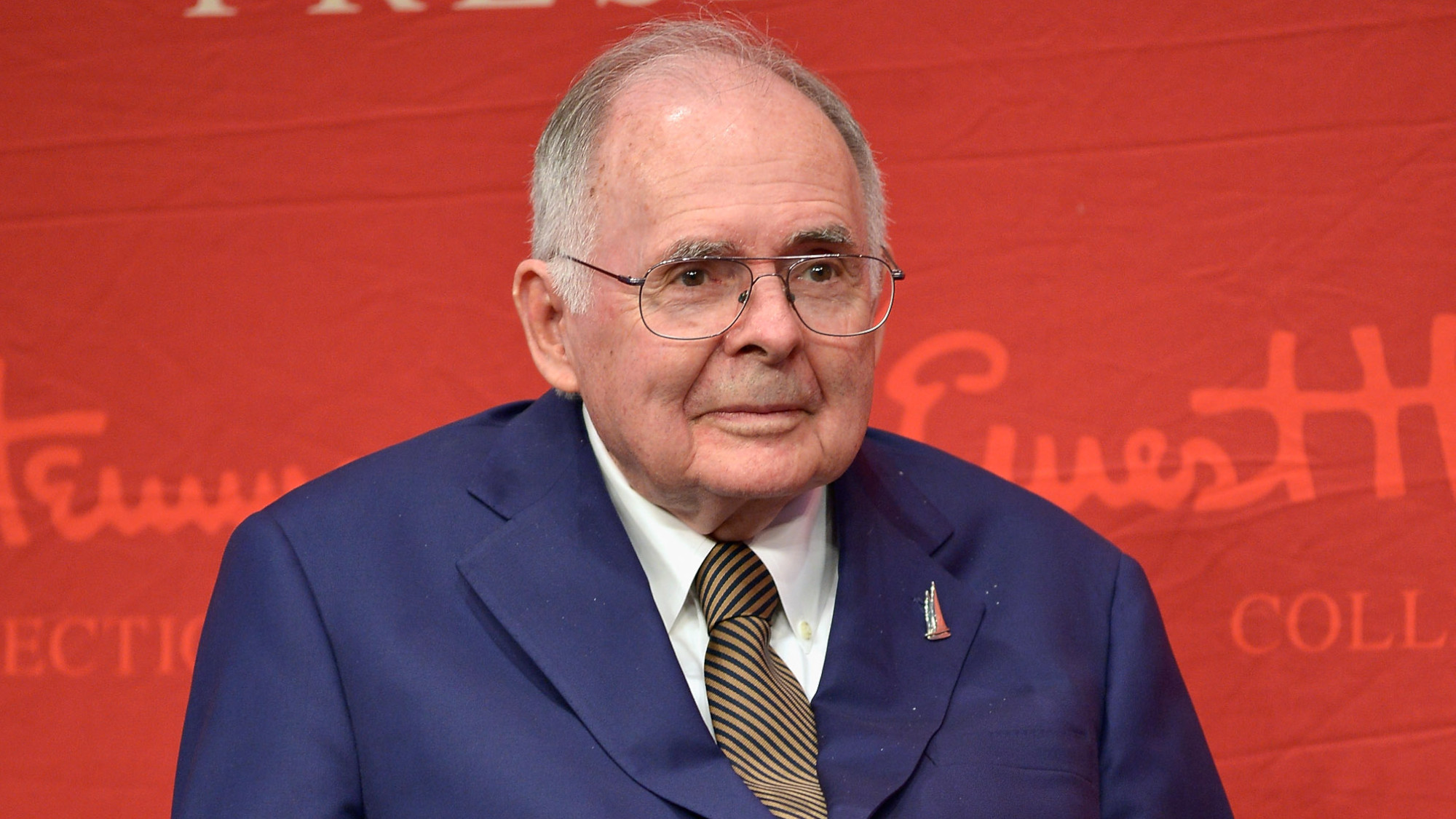The Maryland farmer who inspired a Bob Dylan classic
W.D. Zantzinger
A free daily email with the biggest news stories of the day – and the best features from TheWeek.com
You are now subscribed
Your newsletter sign-up was successful
The Maryland farmer who inspired a Bob Dylan classic
W.D. Zantzinger
1939–2009
The Week
Escape your echo chamber. Get the facts behind the news, plus analysis from multiple perspectives.

Sign up for The Week's Free Newsletters
From our morning news briefing to a weekly Good News Newsletter, get the best of The Week delivered directly to your inbox.
From our morning news briefing to a weekly Good News Newsletter, get the best of The Week delivered directly to your inbox.
On Feb. 8, 1963, a young white farmer named William Devereux Zantzinger struck and killed a black Baltimore barmaid with his cane. The incident might have remained a footnote of the civil-rights era. But with his folk song “The Lonesome Death of Hattie Carroll,” Bob Dylan ensured that the ugly death would enter the popular imagination. Zantzinger died on Jan. 3, his family providing no further details.
The son of a one-term state legislator, Zantzinger oversaw his family’s 630-acre tobacco operation in southern Maryland, said the Baltimore Sun. On the fateful night, “dressed in tails and wearing a carnation in his lapel,” he was attending the Spinsters Ball, an exclusive social event at Baltimore’s Emerson Hotel. Zantzinger had already been drinking at another venue and smacking waitresses “with a 26-cent, lightweight, carnival-style cane.” After arriving at the Emerson, he demanded a bourbon from 51-year-old Hattie Carroll. When she responded, “Just a minute, sir,” Zantzinger uttered a racial slur and slammed her on the shoulder with his cane. Carroll moaned, “I feel deathly ill” and died of a brain hemorrhage eight hours later.
Though Zantzinger was charged with murder, his lawyers argued that Carroll could have died from her enlarged heart and hypertension, said The New York Times. “A three-judge court agreed that the caning alone could not have caused the death and reduced the charge to manslaughter.” When Zantzinger was sentenced to six months in prison that August, Bob Dylan was inspired to set the story to music. “Some accounts say he wrote the song in an all-night coffee shop on Seventh Avenue in Manhattan, others that he wrote it at Joan Baez’s house in Carmel, Calif.” Dylan simplified the narrative, not mentioning, for instance, the reduced charge. Nonetheless, the powerful lyrics—“William Zanzinger [sic] killed poor Hattie Carroll / With a cane that he twirled around his diamond ring finger”—yielded one of the singer’s most memorable early tunes.
Zantzinger made headlines again in 1991, when he was fined $50,000 and sentenced to 18 months “for collecting more than $64,000 in rent on properties he had not owned for more than five years,” said The Washington Post. He rarely spoke of the Carroll incident, but in 2001 he called Dylan’s song “a total lie” and declared, “He’s just a scumbag of the earth. I should have sued him and put him in jail.”
A free daily email with the biggest news stories of the day – and the best features from TheWeek.com
-
 The ‘ravenous’ demand for Cornish minerals
The ‘ravenous’ demand for Cornish mineralsUnder the Radar Growing need for critical minerals to power tech has intensified ‘appetite’ for lithium, which could be a ‘huge boon’ for local economy
-
 Why are election experts taking Trump’s midterm threats seriously?
Why are election experts taking Trump’s midterm threats seriously?IN THE SPOTLIGHT As the president muses about polling place deployments and a centralized electoral system aimed at one-party control, lawmakers are taking this administration at its word
-
 ‘Restaurateurs have become millionaires’
‘Restaurateurs have become millionaires’Instant Opinion Opinion, comment and editorials of the day
-
 Catherine O'Hara: The madcap actress who sparkled on ‘SCTV’ and ‘Schitt’s Creek’
Catherine O'Hara: The madcap actress who sparkled on ‘SCTV’ and ‘Schitt’s Creek’Feature O'Hara cracked up audiences for more than 50 years
-
 Bob Weir: The Grateful Dead guitarist who kept the hippie flame
Bob Weir: The Grateful Dead guitarist who kept the hippie flameFeature The fan favorite died at 78
-
 Brigitte Bardot: the bombshell who embodied the new France
Brigitte Bardot: the bombshell who embodied the new FranceFeature The actress retired from cinema at 39, and later become known for animal rights activism and anti-Muslim bigotry
-
 Frank Gehry: the architect who made buildings flow like water
Frank Gehry: the architect who made buildings flow like waterFeature The revered building master died at the age of 96
-
 R&B singer D’Angelo
R&B singer D’AngeloFeature A reclusive visionary who transformed the genre
-
 Kiss guitarist Ace Frehley
Kiss guitarist Ace FrehleyFeature The rocker who shot fireworks from his guitar
-
 Robert Redford: the Hollywood icon who founded the Sundance Film Festival
Robert Redford: the Hollywood icon who founded the Sundance Film FestivalFeature Redford’s most lasting influence may have been as the man who ‘invigorated American independent cinema’ through Sundance
-
 Patrick Hemingway: The Hemingway son who tended to his father’s legacy
Patrick Hemingway: The Hemingway son who tended to his father’s legacyFeature He was comfortable in the shadow of his famous father, Ernest Hemingway